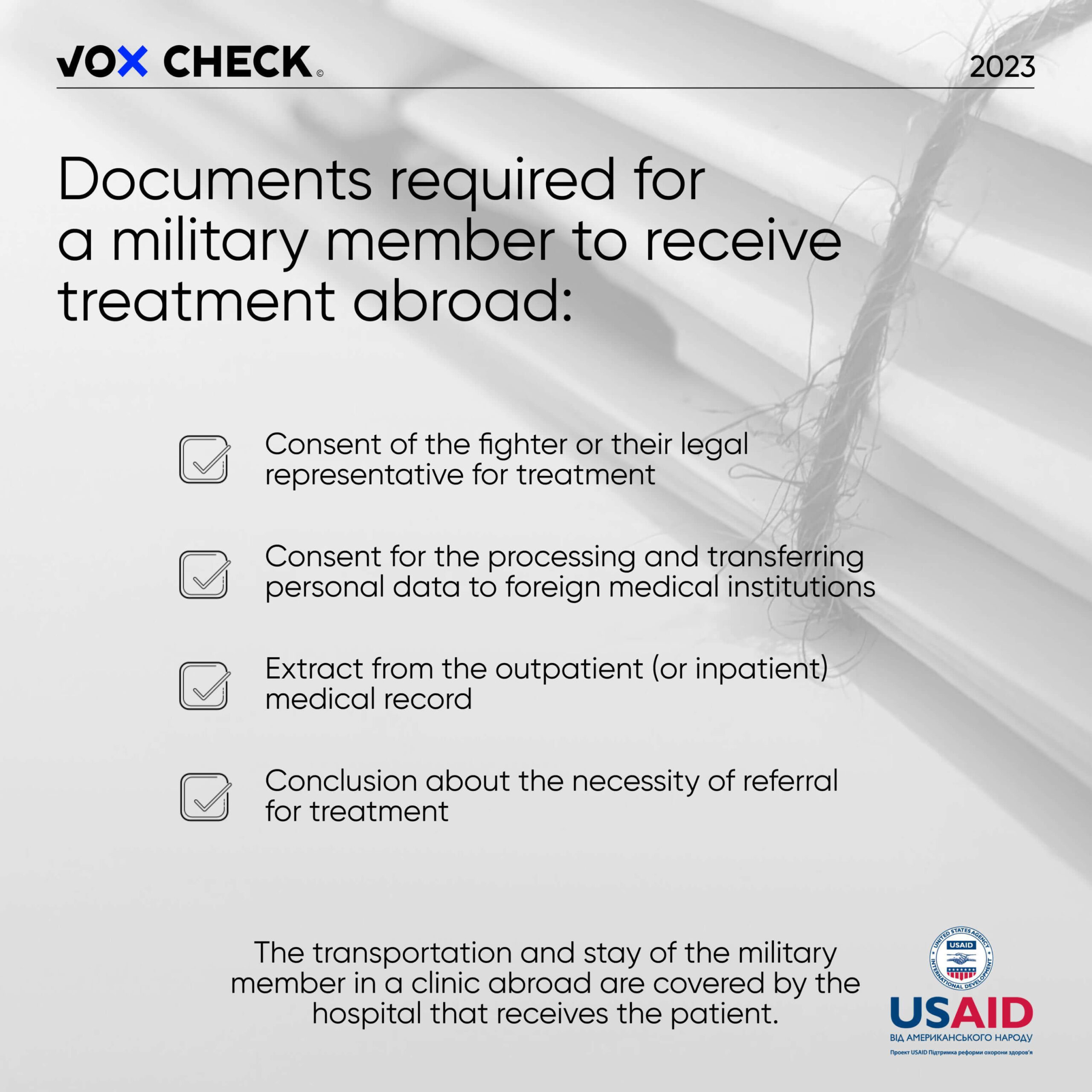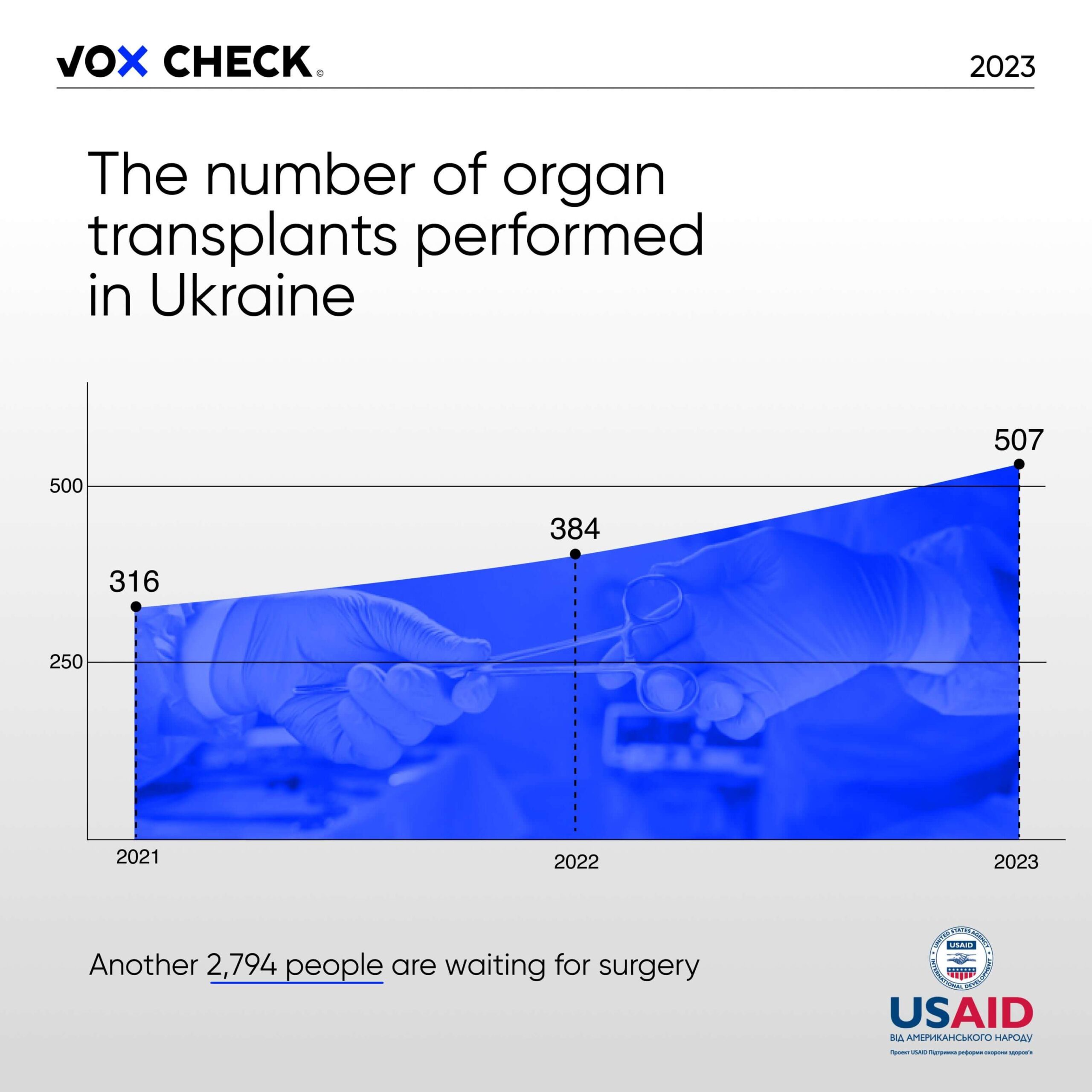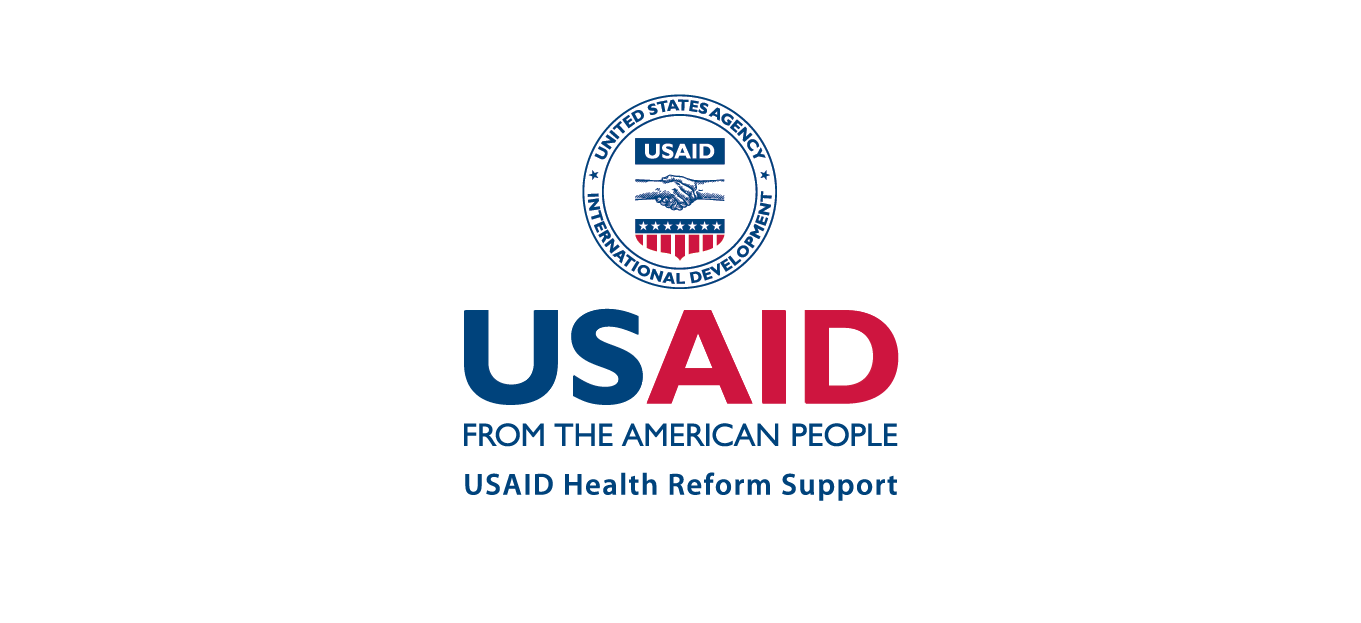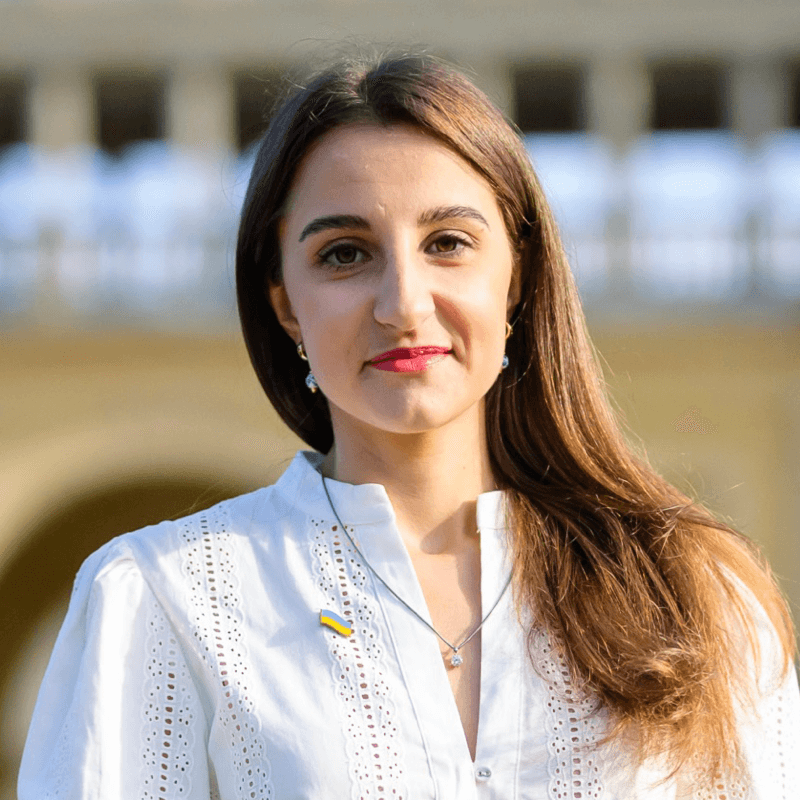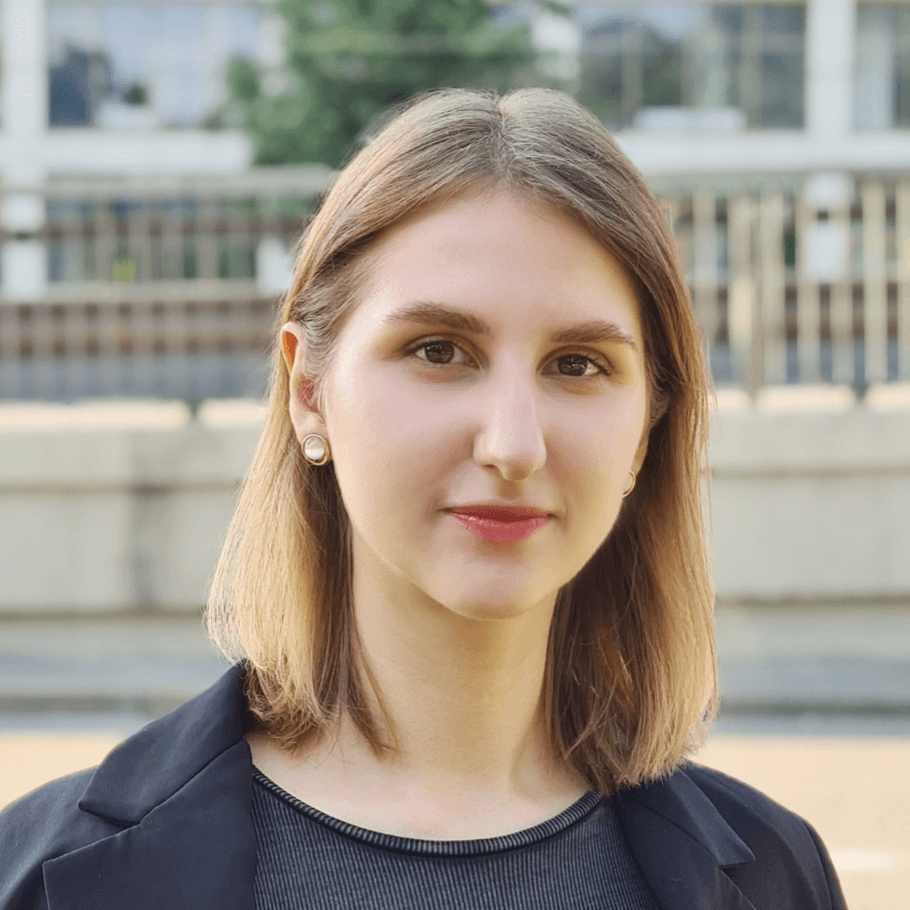This week, Russian propagandists have once again returned to their favorite topic — “black transplantology.” Referring to “Western media,” they claimed that organs are illegally harvested from wounded Ukrainian soldiers in a German hospital. Russian sources also spread fake letters with the seal and signature of Colonel from the bolonskyi District Territorial Recruitment and Social Support Center (Kyiv). In these letters, the wife of a deceased Ukrainian soldier was informed that her serviceman was in the intensive care unit and was asked to give consent for the transplantation of his organs to “give life to other soldiers.”
With the support of the USAID Health Reform Support project, VoxCheck analyzes and refutes public health narratives spread in the information space of Ukraine, Belarus, and russia on a weekly basis.
Disinformation: Organs are illegally harvested from wounded Ukrainian soldiers in a German hospital for sale
With reference to The Nation publication, Russian Telegram channels claim that wounded Ukrainian soldiers are being sent to a hospital in the German city of Landstuhl. There, under the pretext of “treatment,” employees of the American Global Surgical and Medical Support Group (GSMSG) allegedly illegally harvest organs from the injured military personnel. This information was disclosed by one of the GSMSG employees on his YouTube channel. Volodymyr Zelenskyi allegedly even awarded him for his work as a transplantologist.
What’s the reality?
The Global Surgical and Medical Support Group does not harvest organs from Ukrainian wounded fighters for their subsequent sale. There are no official confirmations of the activity of “black transplantologists” within the Group. This is another Russian fake aimed at discrediting Ukraine. Several factors indicate the falsehood of the information.
At the beginning of the video, the “former employee” of GSMSG claims to have worked as a transplantologist there since 2015. In reality, the organization provides medical assistance to civilians in conflict zones or areas affected by natural disasters. This can include both primary medical aid and specialized care, such as neurosurgery.
In his video, the “former employee” of the organization does not disclose his name to remain “anonymous.” He then talks about an unofficial project in Djibouti, where he and other members of the organization allegedly “illegally harvested” organs from civilians and military personnel in critical conditions. The harvested organs were supposedly intended for the higher command of the U.S. Army.
In 2022, the man claims to have gone to work on a similar project in the Lviv region. According to him, for a year of working as a “black transplantologist,” he was paid $840,000. Specifically, the man was involved in finding donors for organ harvesting. And, of course, he repeats the Kremlin narrative that “organs were intended for NATO military.” Increasingly in his video, the “former employee” moves on to discredit the top leadership of Ukraine. He accuses Volodymyr Zelenskyi of overseeing the process of “black transplantologists” and claims to have received an “honorary certificate” from the President of Ukraine.
A screenshot of a video of an alleged “ex-employee” of the Global Surgical and Medical Support Group
In reality, the award “For Merits to the Ukrainian People” is granted by the Verkhovna Rada, not the president. The design of the official certificate differs from the one shown by the man. Moreover, the top of the certificate should bear the inscription of the Verkhovna Rada itself.
An example of a certificate “For Merits to the Ukrainian people”. Source: Oleksandr Khoruzhenko’s Facebook page
Furthermore, the “former employee” of the American organization registered his YouTube channel only on November 22, 2023, and the organ transplantation video is the only one on his channel. This indicates that the channel was likely created specifically for spreading fake information.
We also contacted GSMSG regarding the mentioned video. They responded that it was evident Russian propaganda, and such an individual had never worked for them.
Response from the Global Surgical and Medical Support Group to our request
Throughout the full-scale invasion, GSMSG (Global Surgical and Medical Support Group) personnel are training Ukrainian medical professionals in tactical medicine and surgical aid for the wounded. However, the organization has no involvement in organ harvesting from Ukrainian military personnel. Additionally, we found no evidence that GSMSG treated injured soldiers in Germany.
Earlier, the Minister of Health of Ukraine, Viktor Liashko, reported that injured Ukrainian military personnel receive treatment in many European countries. However, there are certain limitations. Patients with injuries requiring highly specialized assistance after severe trauma are sent abroad for treatment. More details about the document submission process for the treatment of a military member abroad can be found on the “Pryncyp” human rights center’s page.
Source: human rights center “Pryncyp”
Disinformation: Relatives of Ukrainian Armed Forces soldiers are urged to sign consent for organ transplantation after the soldier’s death
Information is circulating online claiming that relatives of Ukrainian Armed Forces soldiers are being urged to sign permission for organ donation so that, in the event of the soldier’s death, their organs can be transplanted to another person. The post’s authors attach screenshots of Instagram stories showing letters purportedly sent to the soldier’s wife. In the first communication, they request permission for organ donation, and in the second, it is mentioned that the soldier has been evacuated to the intensive care unit of Kyiv City Clinical Hospital No. 8. Both messages are sent with the signature and stamp of Colonel Oleksii Pryvala from the Obolonskyi District Territorial Recruitment and Social Support Center.
Screenshots of the post
What’s the reality?
Military personnel, like representatives of any other profession, can express consent or refusal for organ donation during their lifetime. However, according to Ukrainian legislation, the harvesting of organs for transplantation or the production of bio-implants from individuals who died in combat is prohibited. The letter indicates that the military member was admitted to the hospital after evacuation from the combat zone, meaning due to injuries sustained in battle. Therefore, regardless of consent, organs cannot be harvested from a serviceman.
However, if a military member dies not as a result of combat actions and did not express consent or refusal for posthumous organ donation during their lifetime, permission for organ transplantation can only be provided by the closest relatives (spouse, children, parents, sisters/brothers) and the person who has committed to burying the donor.
The message was intentionally published in Instagram Stories because, in this format, the post disappears after 24 hours, and the account name that shared the photo was deliberately obscured. Errors in the documents indicate the fake. Specifically, the letter requesting permission for organ transplantation states that transplantation will occur if “he/she dies as a result of… disconnection from life support machines.” However, this condition prevents further organ transplantation.
As noted by the transplant coordinator of the 1st Poltava City Clinical Hospital, Galiia Mustafina, a transplantation operation is conducted after confirming brain death, during which the body’s functions (breathing, circulation) are artificially supported using equipment and medications. “In other words, transplantation is only possible as long as the heartbeat is maintained. If a person has died and their heart has stopped beating, their organs cannot be removed and transplanted; they will no longer function in the recipient’s body,” explained the doctor.
Additionally, the stamp and signature of Colonel Oleksiy Pryvala could have been copied from the mobilization order published by the Obolonskyi District Territorial Recruitment and Social Support Center on June 19, 2023.
Screenshots: 1. Stamp and signature in the fake document; 2. Stamp and signature of Colonel of the Obolonskyi District Territorial Recruitment and Social Support Center
In turn, for the template of the letter with the specified address of the medical institution where the military member is supposedly located, they chose the header of the notification to the family of the deceased military personnel. In this same document, the term “Your” was written in lowercase, although typically in documents, it is written in uppercase, and the word “відділення” (department) was used without the doubled “н.”
1. The letter that was circulated online; 2. The header of the notification to the family of the deceased military personnel.
In the letter requesting posthumous organ donation, a similar mistake was made, and the terms “You” and “Your” were written in lowercase. Additionally, the phrase “на жаль” (unfortunately) is written together. In the “document,” for more detailed information regarding granting permission for transplantation, it is advised to contact the medical institution where the military member is located, the Territorial Recruitment and Social Support Center, or the military enlistment office. However, the latter structure was replaced by territorial recruitment centers back in 2020, and consent for the transplantation of organs from a deceased relative can only be confirmed in medical institutions. To do this, the person must submit a relevant statement to the transplant coordinator. Information about consent or refusal is confidential and will only become available in the case of a diagnosed brain death.
Despite the war, the transplantation system continues to develop successfully and save lives. According to the latest information from the Ministry of Health of Ukraine, 507 transplantations were carried out this year, which is 32% more than last year’s figures.
This information piece was produced with the assistance of the United States Agency for International Development (USAID), provided on behalf of the people of the United States of America. This article’s content, which does not necessarily reflect the views of USAID, the United States Government, is the sole responsibility of Deloitte Consulting under contract #72012118C00001.
Attention
The authors do not work for, consult to, own shares in or receive funding from any company or organization that would benefit from this article, and have no relevant affiliations




